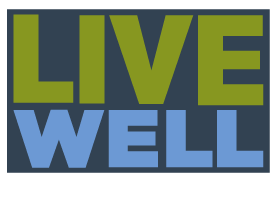Promising Practices
The Promising Practices database informs professionals and community members about documented approaches to improving community health and quality of life.
The ultimate goal is to support the systematic adoption, implementation, and evaluation of successful programs, practices, and policy changes. The database provides carefully reviewed, documented, and ranked practices that range from good ideas to evidence-based practices.
Learn more about the ranking methodology.
Filed under Evidence-Based Practice, Health / Prevention & Safety, Teens
Goal: The goals of the MCM are to provide a comprehensive and centralized concussion care program to 1) increase concussion awareness and identification through education and training; 2) facilitate the return to play decision with effective medical treatment, which includes baseline neurocognitive testing; and 3) implement a standardized concussion care protocol and concussion injury surveillance system to assist in the prevention of concussions, improve player safety, and limit school liability.
Impact: From the pilot evaluation of the model it was determined that the MCM model or a similarly designed one is effective in increasing the number of concussions identified, reported, and also treated at a clinic.
Filed under Evidence-Based Practice, Health / Wellness & Lifestyle, Men, Racial/Ethnic Minorities
Goal: The overall goal of d-up! is to increase the number of black MSM who use a condom when they have sex.
Filed under Good Idea, Community / Social Environment, Urban
Goal: The mission of DotWell is to guarantee high-quality clinical and community services across both sites—addressing health disparities, meeting the complex needs of a changing Dorchester community, and building social capital in and across neighborhoods.
Filed under Evidence-Based Practice, Health / Adolescent Health, Teens, Men, Racial/Ethnic Minorities
Goal: The primary aim of Draw the Line/Respect the Line is to reduce the number of students who initiate or have sexual intercourse and to increase condom use among those students who do have sexual intercourse.
Filed under Effective Practice, Environmental Health / Toxins & Contaminants, Children, Teens, Adults
Goal: To restore the Elizabeth River to the highest practical level of environmental quality through government, business and community partnerships.
Filed under Evidence-Based Practice, Education / Educational Attainment, Adults
Goal: The goal of this program is to improve outcomes among Community College students who are on academic probation.
Impact: Enhanced Opening Doors helps low-income students earn college credentials as the pathway to better jobs and further education.
Filed under Effective Practice, Health / Children's Health, Teens, Adults, Families
Goal: The goal of FACE-ACP is to give adolescents and adults living with a serious medical condition a voice by facilitating conversations between patients and their caregivers so they can achieve their goals and match medical treatment to their goals.
Filed under Evidence-Based Practice, Education / Childcare & Early Childhood Education, Children
Goal: The program's goal was to improve child behavioral problems during the early preschool years.
Impact: The FOL program positively impacted preschool children's behavior in the classroom.
Filed under Evidence-Based Practice, Health / Family Planning, Teens
Goal: The goal of this program is to decrease pregnancy in adolescent and teenage girls.
Impact: Those who participated in one or more program components were significantly less likely to experience pregnancy than nonparticipants (5.9% vs 12.3%). Those who participated in two or more program components were significantly less likely to engage in sexual intercourse without birth control than those who participated in only a single program component (8.9% vs 20.6%).
Filed under Evidence-Based Practice, Health / Alcohol & Drug Use, Children, Teens
Goal: The HeadOn program is designed to promote well-known protective factors based on both the social-influence model of drug use and a generalized skills-training model.

